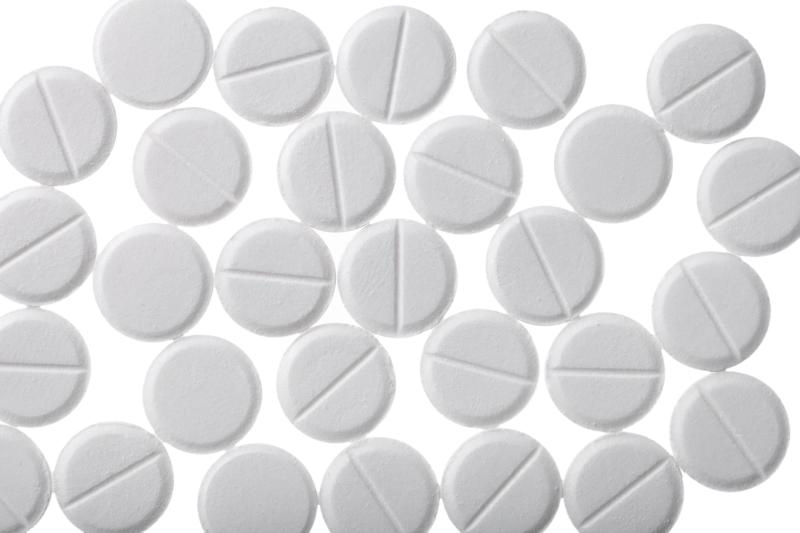Antimalarial drugs find another purpose: Lower pre-eclampsia risk in lupus pregnancies





A recent study suggests that antimalarial drugs may be beneficial in reducing the risk of developing pre-eclampsia in pregnant women with systemic lupus erythematosus (SLE).
“Due to its beneficial effects and good safety profile, the use of antimalarial drugs during gestation in women with SLE has increased in the present century,” according to researchers. [Br J Clin Pharmacol 2016;81:835-848; Lupus 2018;27:1012-1017]
Hydroxychloroquine, for example, has been shown to exert favourable effects on maternal-foetal outcomes, including lupus flare-ups, prematurity rates, intrauterine growth restriction, and rate of foetal loss. [Lupus 2015;24:210-217; Ann Rheum Dis 2018;77:855-860; Autoimmun Rev 2015;14:498-502; Am J Obstet Gynecol 2016;214:273.e1-e8]
In the present study, the researchers identified risk factors associated with pre-eclampsia in SLE in 316 pregnancies at ≥20 weeks of gestation. Forty-six of these (14.5 percent) were complicated by pre-eclampsia.
Women who did vs did not develop the pregnancy complication were more likely to have active disease before pregnancy (24.4 percent vs 11.3 percent; p=0.01) and history of lupus nephritis (56.5 percent vs 30.1 percent; p<0.001). Pre-eclampsia was associated with an increased incidence of premature birth, very low birth weight, stillbirth, and neonatal death. [Int J Rheum Dis 2020;doi:10.1111/1756-185X.13830]
Multivariate binary logistic regression analysis confirmed the association of pre-eclampsia risk with the activity of SLE prior conception (relative risk [RR], 2.7, 95 percent confidence interval [CI], 1.04–7.4; p=0.04) and during pregnancy (RR, 3.0, 95 percent CI, 1.0–9.1; p=0.04). Conversely, the use of antimalarial drugs during pregnancy conferred a significant protection against the risk (RR, 0.21, 95 percent CI, 0.08–0.53; p<0.001).
The results are consistent with a retrospective study of 151 pregnancies in Korean women with SLE, which showed that hydroxychloroquine exposure was associated with a lower risk of pre-eclampsia (odds ratio, 0.106, 95 percent CI, 0.017–0.671), although the present study involved a greater number of pregnancies studied prospectively, as the researchers pointed out. [Lupus 2019;28:722-730]
“It is worth mentioning that, despite the benefits described above, the reported use of antimalarial drugs during pregnancy ranges from 10 percent to 75 percent in contemporary studies. In addition, a recently published Canadian study showed that the use of [such] drugs was stopped in up to 30 percent of patients during pregnancy,” they said. “That is why we believe that our results reinforce the importance of maintaining antimalarial drugs during pregnancy.” [Lupus 2019;28:1205-1213]
In theory, the said medications have different properties that may explain their benefit in reducing the risk of developing pre-eclampsia. These include anti-inflammatory, antioxidants, and vascular protective effects. [J Matern Fetal Neonatal Med 2018;31:525-529]
“The vast majority of our patients took chloroquine during pregnancy, instead of hydroxychloroquine, which is the antimalarial drug most frequently used worldwide because of the lower risk of ‘nonserious’ side effects… However, pharmacologically, both drugs show similar efficacy, so our results could be extrapolated to the use of hydroxychloroquine,” the researchers noted. [Inflammopharmacology 2015;23:231-269; Clin Drug Investig 2018;38:653-671]
“It has been suggested that serum levels of antimalarial drugs may be important on their pharmacological effect, which may reflect in part the therapeutic adherence. We did not measure the levels of antimalarial drugs in our patients; hence, we do not know if the levels were adequate, although the benefit of measuring them has not been conclusively demonstrated,” they continued. [J Rheumatol 2019;46:57-63]
As such, the researchers called for additional investigations to establish the use of antimalarial medication in women with SLE at high risk of developing pre-eclampsia.